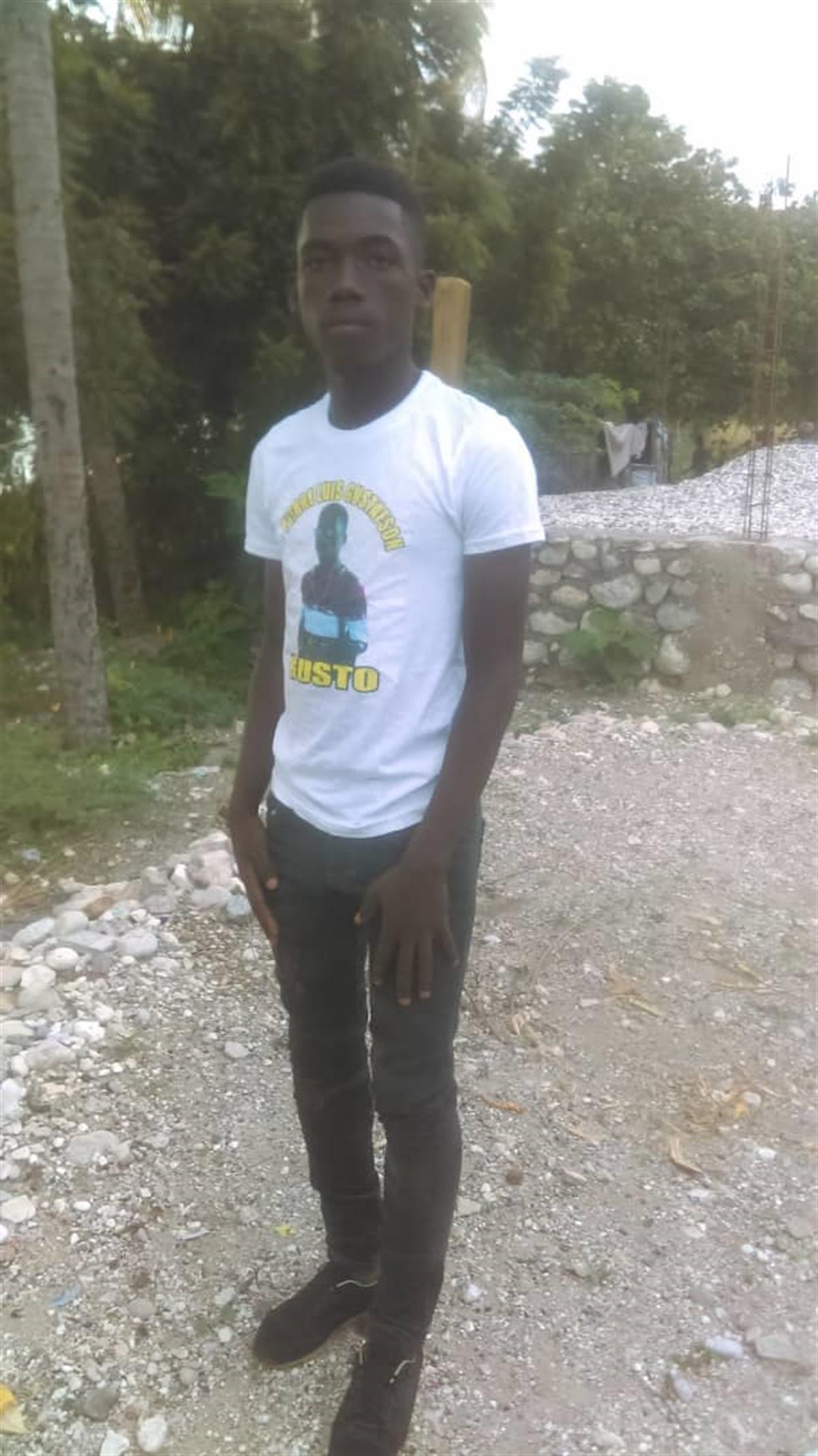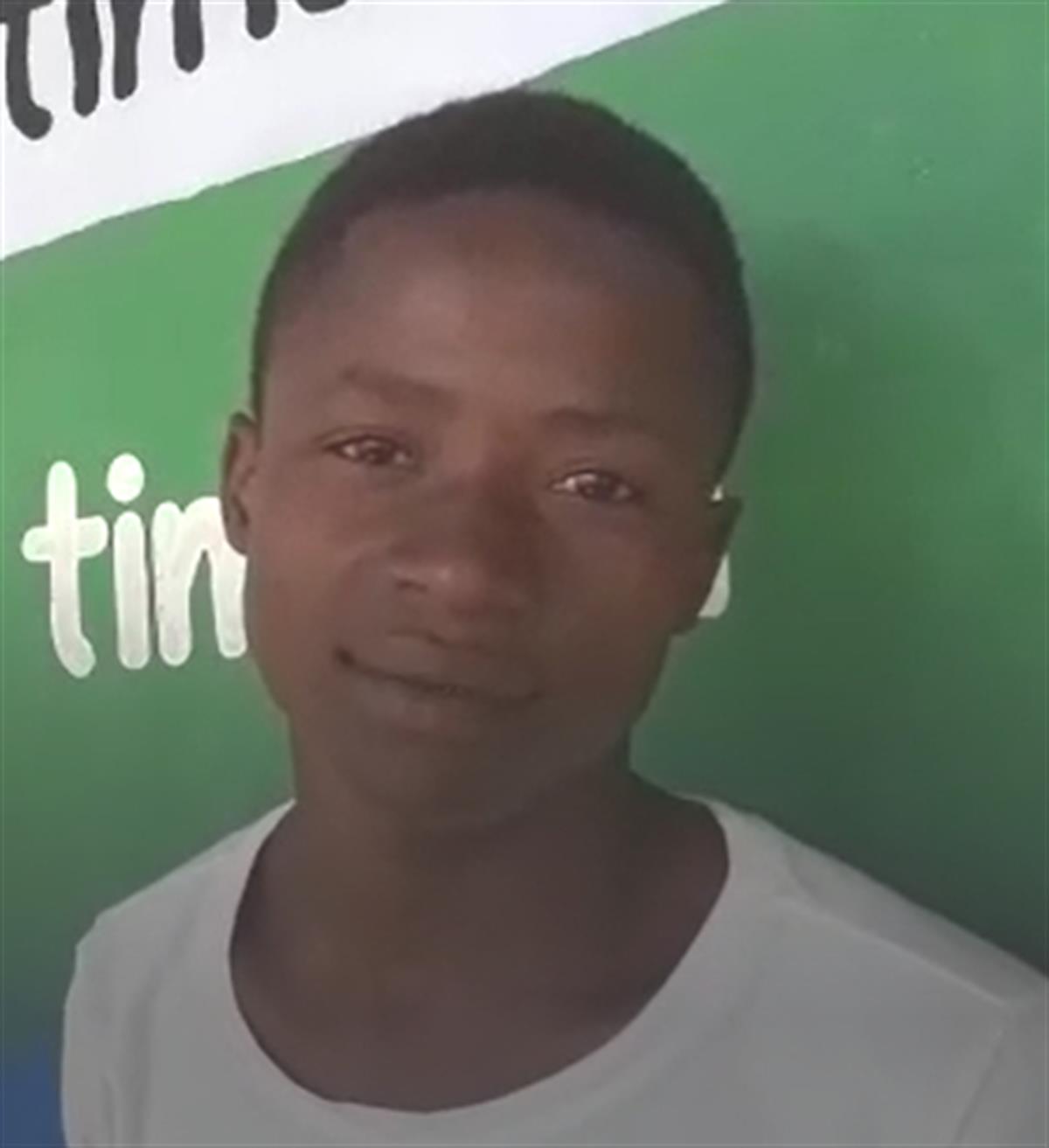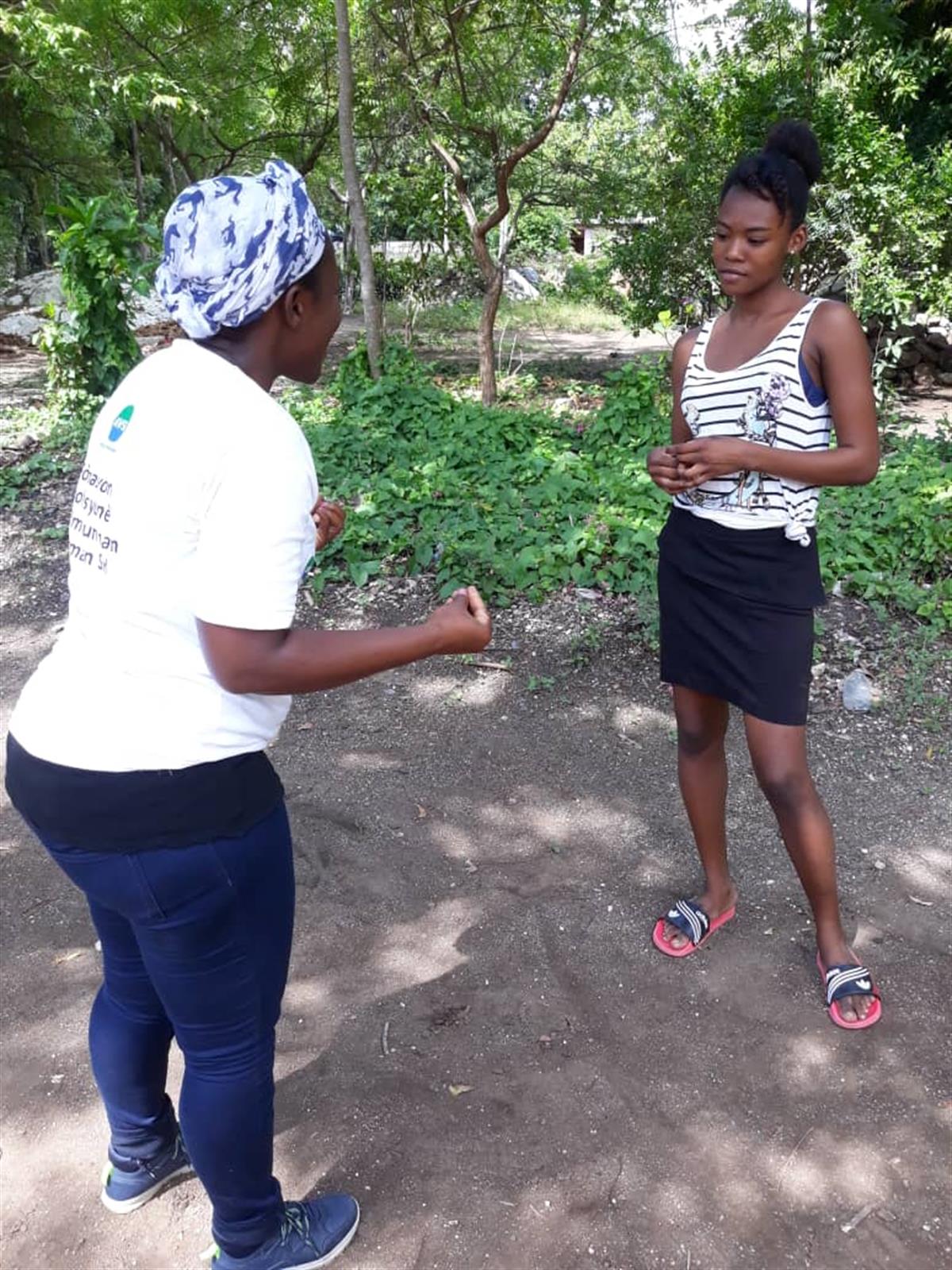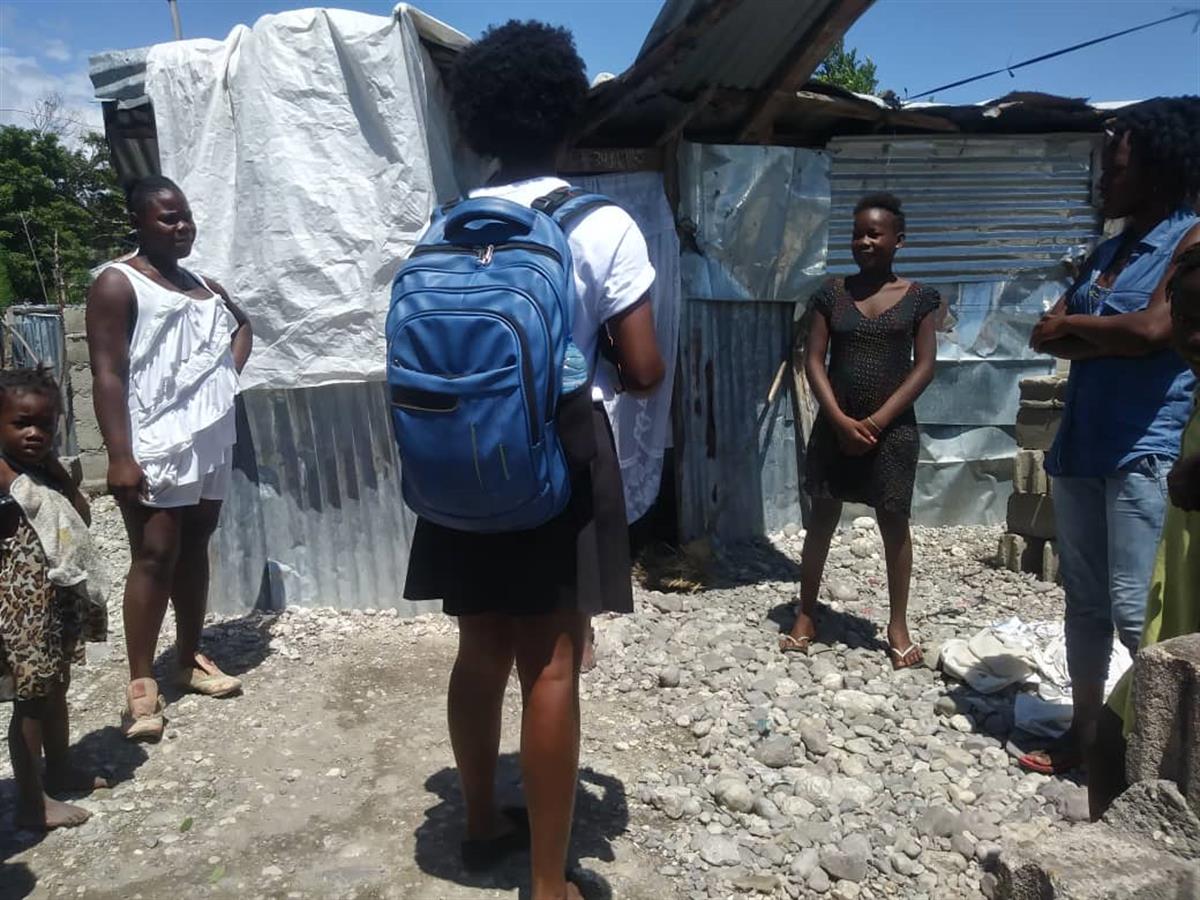Haiti, with an agricultural and industrial sector insufficient for the needs of the population and still suffering the consequences of the 2010 earthquake, is the poorest country on the American continent, often affected by violent social protests. The fear of the spread of the COVID-19 in such a precarious situation has led the authorities to implement preventive measures, closing schools at all levels and prohibiting any form of assembly involving more than 10 people.
Even the professional training courses organized by AVSI and funded by ILO (International Labour Organization) had to deal with the current restrictive measures, in order to comply with the regulations in force and at the same time to continue the work with the young participants through psychosocial support and awareness campaigns on the importance of hygiene and social distancing, which are essential to limit the spread of the new Coronavirus.
Gustafson, future tiler
Gustafson is 17 years old and lives in Port à Piment, on the south coast. As well as attending school, in November he started a professional training course at the South Coast Development Centre (CDCSH), at the end which he will be able to take the state exam to become a tiler and enter the labour market. Awaiting the reopening of the school and course, Gustafson participated in a small group meeting on the prevention of contagion from COVID-19.
"Thanks to this meeting it is even clearer to me how important it is that most people respect sanitary regulations and social distancing - commented Gustafson - I also want to talk about it with the other people living in my village so that everyone is aware and for my family I think I will install a hand washing point outside my home”.


Woodely and the family tailor's shop
Woodely lives in Roche à Bateau (in the southern department) and is 16 years old. He lives with a large family, attends school and a professional course on weekends. Since the professional centre is located in the municipality of Port Salut, which is difficult to reach, the public school in his city has provided AVSI with a classroom for the tailoring course in collaboration with the staff of the Chamber of Commerce, AVSI's partner in the professional training project supported by the International Labour Organization. Woodely follows the lessons together with his brother Taylor and sister Franceline; their dream is to open a small shop together. Despite the block of school and training activities, the three boys continue to study and practice at home, remotely followed by their teacher, M.me Jean Louis Camesuze of the National Congregationalist School of Carpentier (ENCC) in Port Salut and AVSI staff: the periodic home visits have become an appointment to verify that their path continues and to make them aware of the COVID-19 prevention rules.
Abigaëlle "the pastry chef"
Abigaëlle and her sisters attend the pastry course at the Technical Centre of their town, Aquin, while her brother Toto enrolled in the tiler's course. Every afternoon, after school, Abigaëlle goes to the Centre where, thanks to AVSI's support, a meal is distributed to all the students. Because of the COVID-19, the final exam scheduled for April 1st has been postponed but, while waiting for the diploma, Abigaëlle continues to study and practice the recipes learned by M.me Venite Joseph also at home, where she is constantly followed by our staff.

Bethsaida and Ismaïda: food production to generate an income
Ismaïda and Bethsaida are two sisters aged 14 and 16, they live in a very poor area of Les Cayes and have chosen to attend the Agricultural Products Processing course held by the professors of Notre Dame d'Haïti University (UNDH), AVSI's partner since 1999. Ismaïda and Bethsaida's classes were also suspended due to the Coronavirus emergency and the two girls are waiting for them to start again so they can learn how to make jams, flours, jellies, pickles and other food products to sell at the Les Cayes market and contribute to family expenses. "In the meantime - says Bethsaida - we follow AVSI's COVID-19 prevention meetings and try to put into practice what we have learned: sanitize the environments, limit the exits to what is strictly necessary, maintain social distance, avoid physical contact, wash our hands often with soap and do not touch our faces. So, as soon as the emergency is over, we can go back to our courses and start our small family business”.

"The organization of professional courses in the Haitian reality is fundamental because it not only allows the children to lay the foundations for their future, but also creates an alternative to child labour and the practice of domesticity: in exchange for food, accomodation and, in some cases, the payment of school fees, children and adolescents leave their families and move to a relative or stranger offering their help at home or in the activities of the host family.“ explains Fiammetta Cappellini of AVSI "For this reason, UNICEF and ILO (International Labour Organization) finance a program to combat child labour which, thanks to AVSI, offers psycho-social assistance, free medical examinations, payment of school fees and professional training for children between 14 and 17 years old”.
Awareness raising and support to the population: AVSI's work in Haiti continues
The restrictions for the Coronavirus emergency have involved the conversion of some projects to ensure their continuity, adapting the type of intervention. In Port-au-Prince, in the Educational Centre of the Cité Soleil district, awareness raising activities were conducted in small groups, including children. The staff also continues to follow the children supported by distributing school materials and providing psychological help through home visits or by telephone.
Within the framework of the programme "Strengthening the Ministry of Public Health and Population for the health departments of Artibonite and North-West" (Renforcement du Ministère de la Sante Publique et de la Population à travers les directions sanitaires de l'Artibonite et le Nord-Ouest), funded by the European Union, awareness raising activities and distribution of hygiene kits are planned. According to the results of the latest national surveys carried out, many children in the Department of Artibonite and the Northwest do not have access to basic sanitation.